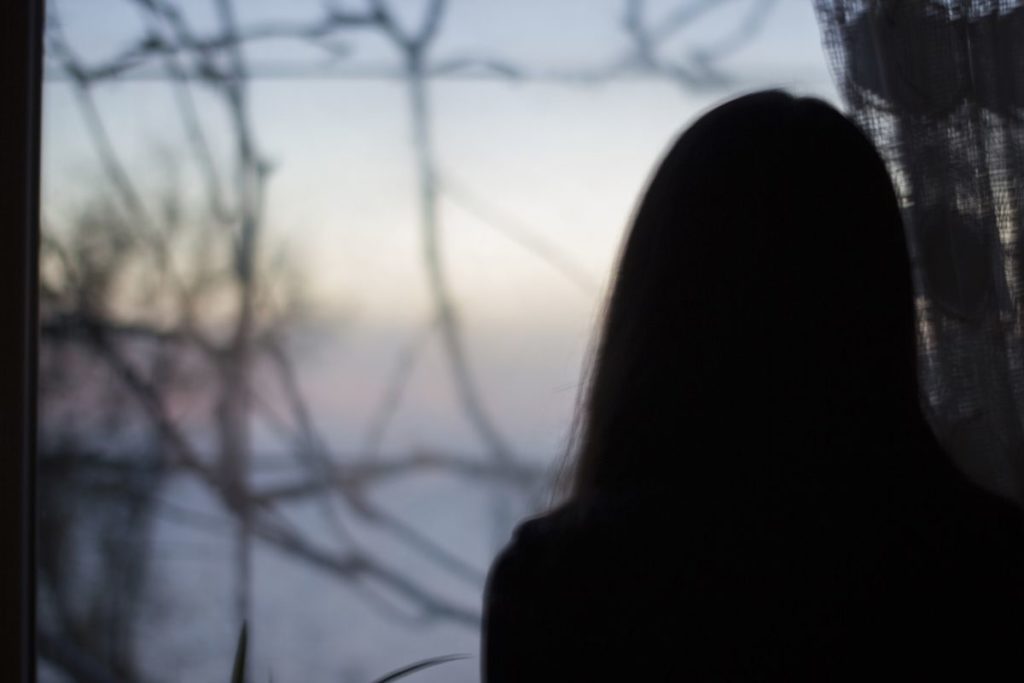My best friend is 35, like me. She’s attractive, fun, interesting, has a good job — but I’m worried about her. Right before COVID, she broke up with her longtime boyfriend. The breakup was unexpected and it hit her hard. Though she’s never said as much, I’m pretty sure she thought they would get married. He has since started a new relationship.
All through COVID, she was very hunkered down. At first, it was not noticeable, because it’s what we were all doing. But as the rest of us started getting together in person again, she didn’t. She’s still working at home, too. So she basically never leaves her house.
I’ve invited her out to eat, for drinks, to go on walks — nothing works. She will video chat whenever I want, and she’s invited me over, which I almost always accept, if I’m available. But she barely even gets dressed anymore — she always has on leggings or sweats and T-shirts. She’s definitely put on some weight — hey, haven’t most of us? But it’s just another sign that she’s unhappy.
She says the opposite, and that she’s happy with how her life is now, but I simply don’t believe her. She and her boyfriend had a fun and active life together — they were always traveling, or going out to eat or for drinks. How can she possibly be happy at home 24/7 constantly watching Netflix, with zero real human interaction? How can I get her out of her shell again — and better yet, maybe even get her dating?
Your friend is lucky to have you; clearly you’re paying attention and watching her closely, not with judgment, but with sincere concern, wanting her to be her happiest and best self. It may seem like it’s been forever since COVID started, and like even more time has passed since her breakup, and that it’s time for to wash her hair and put on a cute outfit already, and get out of her house, and dive back into the dating pool — but what she needs right now, clearly, is time.
Breakups are rough, and rougher when they happen right before a global pandemic that grounds and isolates us, upends our social lives and forcibly reinvents our daily habits. Really, your friend is up against two obstacles: getting over the inevitable heartbreak of the loss of her old relationship, and figuring out what she wants her life to look and feel like post-pandemic. While many of us are eager to leave the hunkering down behind, others are transitioning into the future with more caution, or are actually quite content. Many have found real happiness in spending more time at home, having shed the hustle and bustle of the go-go-go lifestyle, finding simpler pleasures in things like home-cooked meals, lazy evenings, sweatpants, and, yes, Netflix.
So don’t assume your friend’s current lifestyle is rooted in depression or misery or loneliness. I mean, maybe it is. And if it is, that’s OK and understandable, because — as I said — she’s getting over her ex and figuring out how to live her life, and that stuff takes time. But it’s also possible that she’s enjoying being single, or she recognizes that after a long relationship, a timeout is healthy. And it’s also possible that she’s the happiest she’s going to be right now enjoying the comfort and safe space of her home and a laid-back lifestyle.
It’s possible your friend is actually telling the truth. She’s happy and is in no rush to get back out in the dating pool or the pandemic pool. She’s trying her best to live her best, all things considered. And there’s a lot to be considered. Sounds reasonable to me, and it seems Wanda agrees.
So let’s just explore another angle. Maybe during the pandemic, she took one of those discounted MasterClasses in acting and can now easily disguise her deep depression and denial even to her best friend. And maybe all of this time alone has been crippling for her, physically and mentally, like it was for so many others.
What’s a bestie to do? Be kind, understanding, a good listener, and available. What not to be? Pushy, judgmental, assumptive that she wants to get back to going out with friends and on dates as quickly as you do.
Best friends have the license to find sweet spots between motivating and appreciating one another, as well as the foundation of trust and care to have tough conversations. If you show concern and compassion and she does reveal that her depression is real, help her find help. Talking with a professional can guide her to better process and hopefully progress.
And if she’s just in a funk, don’t expect her to jump right back into “normal life,” but also don’t let her slide deeper. Start slowly. Maybe a weekend camping trip or a quiet weeknight spent drinking and dining out on a deck. Low-key activities for now, but out of her house and out in the real world again. Nudge her forward accordingly, but remember there’s no rush here — work on her timetable, not yours.
